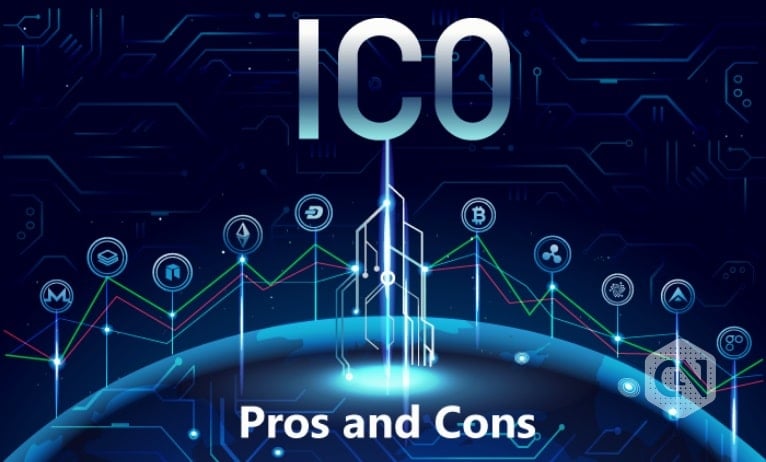The influence of cryptocurrency and blockchain technology is growing with each passing day. We are witnessing heightened interests not only from the investor community in the digital economy but also masses are moving towards the adoption of cryptocurrencies. There are many factors fuelling the adoption of cryptocurrency and some of the significant ones include the high safety and security features, comfort and convenience of transactions, and ultra-low processing charges.
Realizing that the cryptocurrency and blockchain segment can prove to be a reliable source of tax, many governments, central banks, and regulatory agencies are also adopting an open mindset towards the crypto industry. Norms are being relaxed and policymakers are inclined to strike a balance between crypto adoption and regulatory framework under which digital coins can flourish.
Initial coin offering (ICO)
The concept of initial coin offering (ICO) is similar to the initial public offering (IPO). Both these processes are used to raise the capital wherein investors are promised certain rewards in exchange for their investment. In the case of IPO, investors are issued securities, while in the case of ICO, investors are given digital coins or token in exchange for their investment. Often ICO takes the shape of crowdfunding but it is also possible that some organizations may come up with private ICO where participation from the masses is not invited.
The concept of ICO is not very old with the very first offering came along only in 2013. Mastercoin held the first ICO and, in the offer, raised around $5 million in the capital – a considerable amount of money by any standard of comparison. Buoyed by the success, Ethereum came with its own ICO and managed to raise $18 million in the capital. From then onwards, the ICO has witnessed a steady increase in its adoption; however, the concept picked real pace in 2017 when the number of ICO offerings jumped significantly to 875 offers. This translated into a 30X increase in the number of ICOs floated in the year 2016. In 2018, the number accelerated further to 1200 and through these offerings, companies raised a total of $7.85 billion in the capital.
Merits of ICO
- There are a number of benefits associated with ICO – for both the investor and the company. Investors can find access to coins at a low price and reap rich dividends in the future as and when the prices of the coin rise.
- Many organizations also provide exclusive benefits to the investors during ICO, which enables them to redistribute the dividend or have exclusive access to specific projects and services offered by the company.
- ICO issuing organizations, on the other hand, find it very convenient to raise the capital through ICO.
- Unlike the venture capitalist firms which fund the company in exchange for equity shares, there is no such requirement in the case of ICO. This essentially means promoters continue to remain at the helm of the decision making.
- Crypto organizations also get a readymade base for testing the product and services in the form of investors subscribing to their ICOs.
Demerits related to ICO
While the benefits associated with ICO are quite attractive, there are some risks that should be taken into account before subscribing to an ICO.
- Many times it happens that the team handling the ICO is quite inexperienced and couldn’t able to process/handle the demanding situations with efficiency and effectiveness that is desired. In such a case, there is a risk of losing the money or not getting all the facilities that were initially promised by the company.
- Another important factor that needs to be taken into consideration is the regulatory mechanism related to ICOs is quite unsubstantial and weak. Therefore, if you lose the money, the regulatory agencies or statutory provisions might not be able to help you to recover your lost investment. In other words, the lack of transparency and authenticity is a cause of concern for the investors who are interested in ICOs.
- We also have instances of a number of scams from the past that have duped investors in the name of ICOs and even the legal agency would not be able to do much to recover the lost money.
Conclusion
Undoubtedly, the ICO has a number of benefits for both investors and organizations. It is a convenient method to get access to the funds in exchange for providing exclusive benefits to subscribers. The only caution you need to exercise to minimize the risk is to do proper research and investigation. Before subscribing to any ICO, you need to conduct a comprehensive research about the background of the company, what are the projects that it has completed in the past, which cryptocurrency exchange is handling the offer, and what are the various compliances that ICO is adhering to. If you take care of all these questions, you should be able to reap rich dividends from your investment in an ICO.
